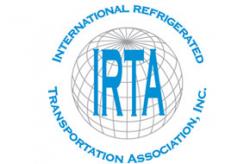What is the Best Way to Handle Rice That Contains Weevils?
Question: We are considering storing rice that will come in a dry container from overseas. The rice will come in 20 or 50 pound bags or poly-lined super sacks. Apparently, rice weevils, which are very tiny (2mm/1/8 inch), are inherent in rice. The weevils become dormant at 60°F and die at 0°F. The research we have done indicates they are not dangerous to humans or animals and do not bite. Our customer wants us to put the product in the freezer for about 10 days and then transfer it to our 36° cooler. I am curious if this is acceptable. Do we run any risk of injecting an infestation into our freezer? Although you would expect the weevils to be trapped inside the bag/sacks, what if they get out while in transit?
Answer: There are two considerations in this situation. First - Before bringing them into the facility, inspect the packages or bulk products. Packages should be sealed and unbroken. Also check the freshness packaging date. Look for evidence of insects, including holes in the packaging or wrapping. Be certain containers are not damaged and seals are intact. Check the inside of the transport truck for evidence of rice and insects. If problems are found, reject the shipment.
Second - The bags need to be frozen at 0°F for at least 4 days to kill the insects. There should be no difficulty in accomplishing this for the smaller bags within 4 days as long as reasonable cold air movement occurs over the surfaces of the bags. Cooling large, “super bags” of 2,000 lbs. or more presents a significant challenge, however. Even with significant air movement over the surfaces of these containers, the time to reach 0°F is over 21 days.
Answered by WFLO Scientific Advisory Council (SAC) Chairman Dr. Michael Jahncke, Virginia Tech University, and WFLO SAC member, Dr. Dennis Heldman, The Ohio State University, Expertise in Food Process Engineering.
Have a question?
![]() We have an answer. Submit your questions to the GCCA Inquiry Service. From legal issues to food storage or handling questions, we work with industry experts and scientists to find you answers.
We have an answer. Submit your questions to the GCCA Inquiry Service. From legal issues to food storage or handling questions, we work with industry experts and scientists to find you answers.



